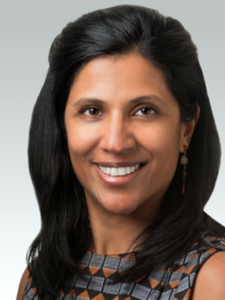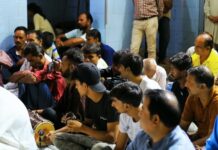Himali Bharucha
Shahida Perveen–a Pakistani mother who had immigrated to the US 15 years earlier–was only 55 years old when she began to suffer from debilitating headaches. She was diagnosed with high blood pressure and high cholesterol and was prescribed blood pressure medication. When the pandemic hit, Mrs. Perveen contracted COVID-19 and passed away at the age of 69 due to heart failure. She is remembered by her five children.
Sadly, Mrs. Perveen is one of many individuals from the Pakistani American community who experience complications from heart disease in their prime adult years. People from South Asia (Bangladesh, India, Maldives, Nepal, Pakistan and Sri Lanka) comprise almost two-thirds of the world’s patients suffering from heart disease. Though the impact of heart disease is high, there is a lack of research that investigates heart issues in South Asian communities. Now, the National Institutes of Health has funded the Mediators of Atherosclerosis in South Asians Living in America (MASALA) Study to add more participants who are of Pakistani background.
The MASALA Study began in 2010, and is the first and only long-term study to examine heart health in South Asian Americans. For the past 12 years, the study team has been following over 1,100 people from South Asian backgrounds and has found that they tend to develop high blood pressure and type 2 diabetes at lower body weights as compared to other ethnic groups. Interestingly, the study also found that many Pakistani participants have significantly more diabetes and obesity than Indian participants. As a next step, researchers are now trying to understand differences in heart health between the three largest South Asian subgroups in the US: Pakistanis, Bangladeshis, and Indians.

When Abida Usman, 56, was approached about joining the MASALA study, she readily agreed. She wanted to check her heart health and learn more about how she could prevent heart attacks through her diet and physical activity. She recalled that it was “a great experience,” and she was able to get screening tests done through the study and learn more about her health.
Dr. Namratha Kandula, MD, MPH, a Professor of Medicine at Northwestern University leads the study and encourages members of the community to participate in research. “The Pakistani, Bangladeshi, and Indian communities are often not represented in health studies, which can make it difficult to know the best prevention and treatment options for our communities,” she said.
It is crucial that Pakistani individuals participate in research that can help current and future generations live healthier lives. Take Hameed Siddiqui, 78, for example. Growing up in Pakistan, Hameed was actively involved in sports and worried little about his health. As he grew older, he saw family members and friends suffer from various heart conditions. He realized something was wrong–not just in his own family, but in his community. When he learned about the MASALA study, he knew he had to join to help protect the health of his community, for those of his age and for future generations.







